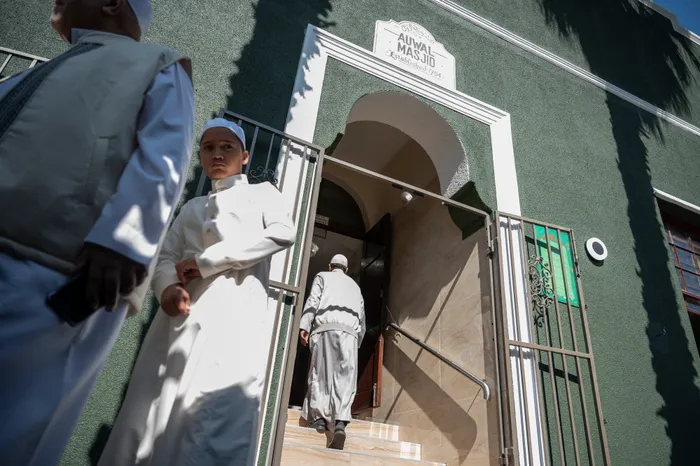Approved Bo-Kaap hotel proposal sparks heritage preservation debate
Mayor Geordin Hill-Lewis confirms the approval of a six-storey hotel near the historic Auwal Masjid in Cape Town, amid concerns from the Bo-Kaap Civic and Ratepayers Association about heritage preservation and potential gentrification.

The historic Auwal Masjid in the Bo-Kaap is located near the approved hotel development
Image: Armand Hough
If any archaeological sites are found during the construction of the six-storey hotel at 150 Buitengracht Street, bordering the Bo-Kaap, all operations must cease and Heritage Western Cape (HWC) must be informed.
This is among the requirements of the revised hotel approval, located near the Auwal Masjid, South Africa's oldest mosque.
Mayor Geordin Hill-Lewis this week confirmed the Municipal Planning Tribunal’s (MPT) decision to approve the hotel development on a vacant lot on the interface between the heritage-rich Bo-Kaap and Cape Town CBD.
During a six-month engagement with the South African Heritage Resources Agency (SAHRA), the mayor in his capacity as appeals authority agreed with the MPT’s findings - that of a smaller, revised hotel design.
A copy of the 40-page notice of decisions and reasons was shared with the media, in which it stated that for the City’s approval, it must permit building work within a Heritage Protection Overlay Zone.
Another section of the document states, “Heritage Management,” in which it indicates that if any archaeology is found on site during construction, the work must cease immediately, and HWC must be informed.
Dr Michael Janse van Rensburg HWC CEO, said in their response that extensive processes were done.
“Heritage Western Cape’s role was to assess a re-design of an already approved nine-storey building in terms of the permitting provisions of the National Heritage Resources Act. At this stage HWC’s role was finalised and further approval of the resulting design fell under the City of Cape Town in terms of the Land Use Management By-Laws.”
According to the procedural history, in 2008, HWC granted a permit for the demolition of the existing buildings on the site to develop the nine-storey mixed-use building for offices and 35 dwelling units.
The City approved the plans and a second building plan was approved in 2020 and its validity extended to January 2022.
The Bo-Kaap Civic and Ratepayers Association then sought an appeal on the grounds that the site had historical and architectural importance and that the development would potentially cause damage to surrounding sites etc.
Mr Hill-Lewis said: “This appeal concerns an application near to a Masjid that is of profound heritage significance to all of Cape Town. For that reason, this matter has been treated with great care, and has followed an exhaustive engagement process. Few, if any, other development proposals have gone through such extensive community consultation, and redesign. The engagement process included a remarkable community facilitation convened by the SAHRA.”
In his appeal outcome report, the mayor noted the development would enhance safety, create jobs, and provide economic benefits to local businesses.
He also said that a decision on parking was not part of the appeal due to the site falling within a ‘Public Transport 2’ area, which does not require dedicated parking.
In response to the development, the newly elected Bo-Kaap Civic and Ratepayers Association said they would be reserving their comment at this stage in order to study the document.
“BKCRA believes that the living heritage of Bo-Kaap must always be protected, the sanctity of the first Masjid in South Africa, the Auwal Masjid, must be respected and any developments that will accelerate gentrification in the Bo-Kaap be rejected."